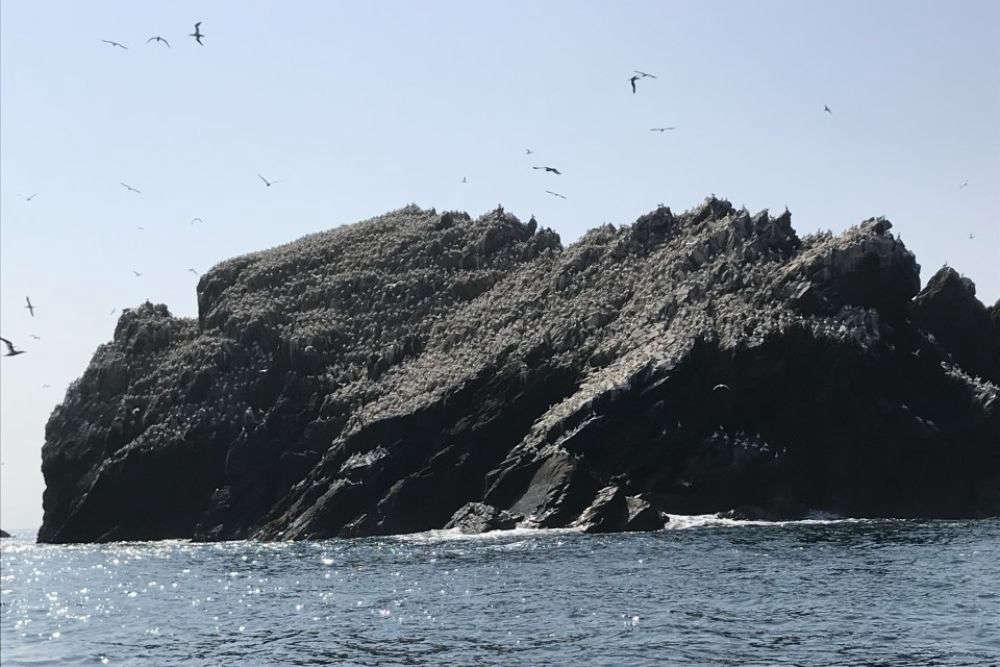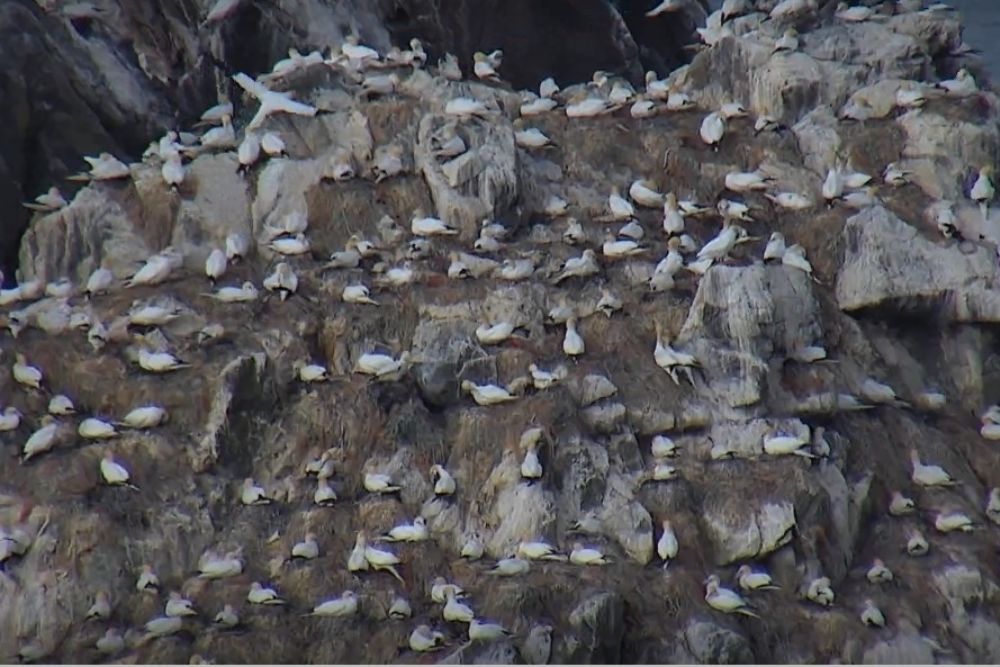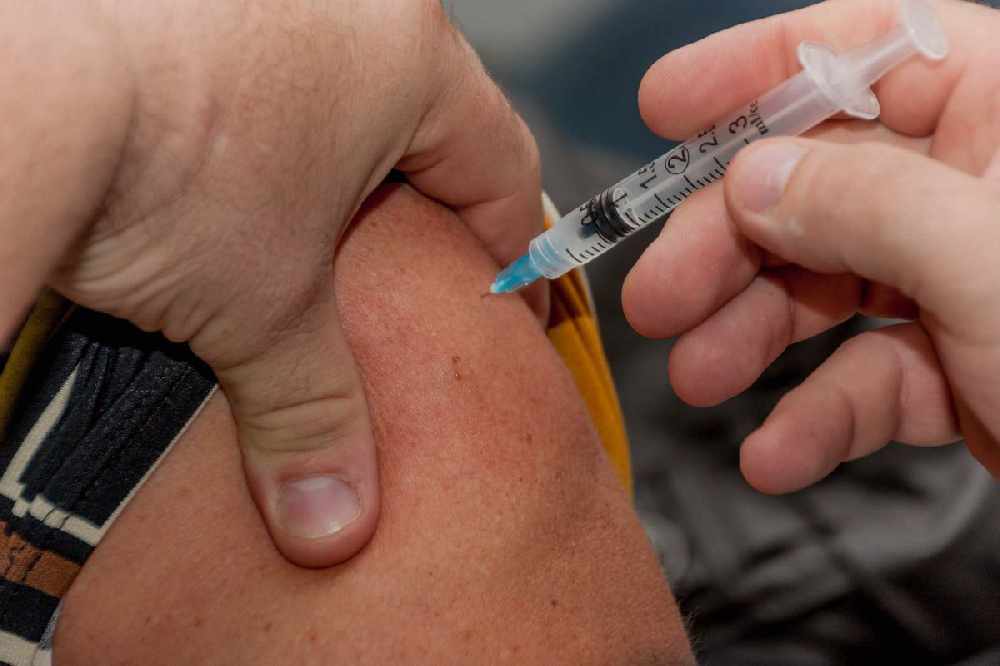
The Alderney Wildlife Trust estimates 4% of Gannet chicks have died of the disease, which has also been confirmed at a farm in Jersey.
Avian flu has been steadily spreading south since the spring and now it's confirmed among Alderney's Gannets, one of the largest single populations in Europe.
Monitoring by the Alderney Wildlife Trust suggests 4% of chicks have died and holes in the colony are appearing. Normally the rocks just off the west coast of the island are densely populated.

The disease has spread inland, and an Alderney smallholder's chickens had to be put down yesterday (16 August).
In Jersey, a suspected outbreak at a farm in St Peter reported earlier this week has been confirmed as Avian Influenza.
32 birds were found dead.
The rest of the flock -18 more birds - have been culled. Feral chickens in the nearby St Peter's Valley will also be destroyed.
A 3km protection zone is being put in place from midnight tonight, legally requiring keepers to house their birds and keep them separate from wild birds.
Volunteers in Alderney have been picking up dead or dying seabirds which have to be disposed of quickly to avoid contamination.
Anyone with domestic birds in the islands is being advised to shield them against wild birds.
Anyone spotting sick or dying gulls or other birds needs to report them to the States of their respective islands.
People are also being told not to feed seabirds like gulls, as the chance of spreading the disease is higher when they mass together.
This strain of Avian flu can spread to humans, but is not considered serious.


 Talks ongoing to enable Guernsey ferries to access St Malo
Talks ongoing to enable Guernsey ferries to access St Malo
 "No shortage" of flu jabs for Guernsey vaccination programme
"No shortage" of flu jabs for Guernsey vaccination programme
 Both winning CI Christmas Lottery Tickets sold in Jersey
Both winning CI Christmas Lottery Tickets sold in Jersey
 Guernsey women's murder trial "unlikely ever to resume"
Guernsey women's murder trial "unlikely ever to resume"
 Guernsey actor to reprise Doctor Who role for Boxing Day Dip
Guernsey actor to reprise Doctor Who role for Boxing Day Dip
 Aurigny to fly between Guernsey and Jersey next year
Aurigny to fly between Guernsey and Jersey next year
 Review into healthcare complaints in Guernsey to go ahead
Review into healthcare complaints in Guernsey to go ahead
 Former CI Co-op boss awarded more than £3m
Former CI Co-op boss awarded more than £3m





